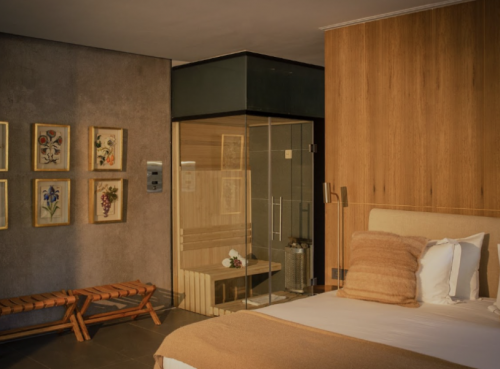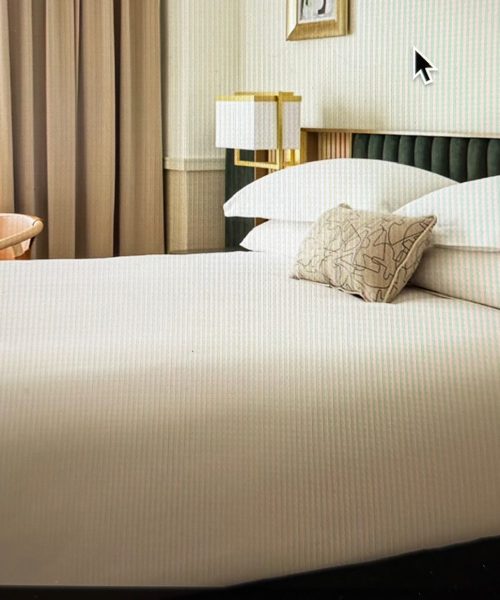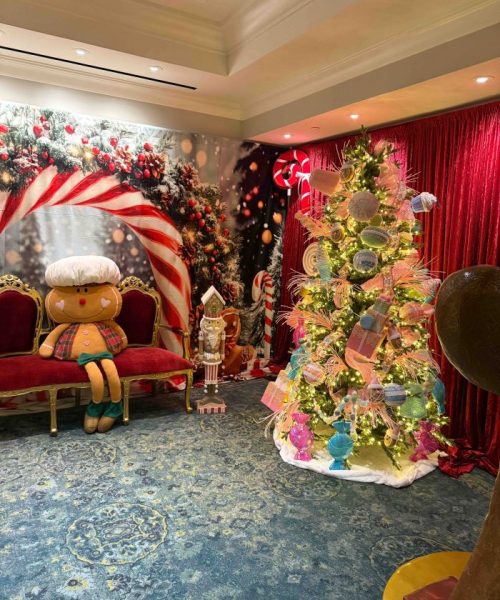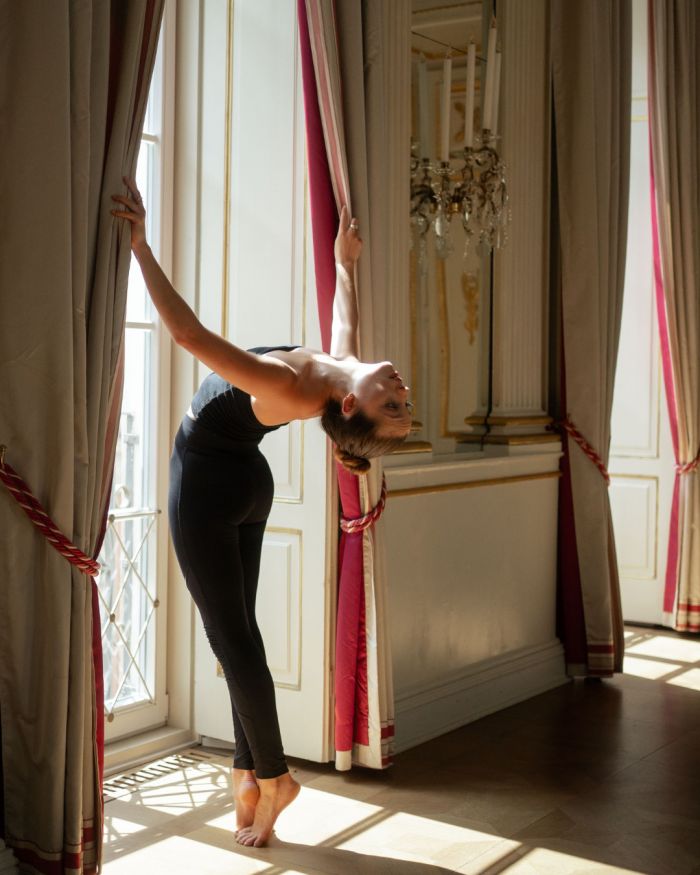
All Images credit Bayerischer Hof Hotel
As the legendary German writer Thomas Mann once said, “Munich is a city that lives in the heart of the world.” Staying at the Bayerischer Hof Hotel is an embodiment of this sentiment, where the heart of the city beats in every corner. Here, the past and present are woven together, offering a fascinating contrast of grandeur and modern vibrance. The hotel’s classical white interiors set the stage for a refined, timeless atmosphere, while its impeccable service delivers the kind of luxury that feels almost indulgent. Yet, beyond the tradition and history, the Bayerischer Hof reveals a surprising, rock star-like energy—where elegance collides with unexpected flair, creating an unforgettable experience.
A Legacy of German Hospitality
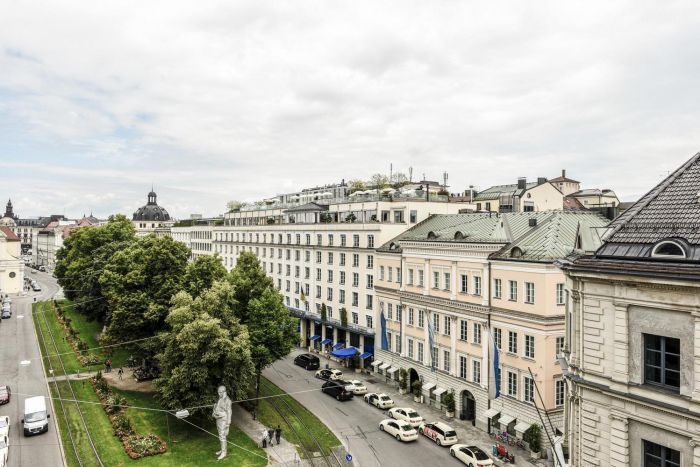
Founded in 1841 by architect Friedrich von Gärtner, under the patronage of Bavarian King Ludwig I, the Bayerischer Hof swiftly became Munich’s premier address for state guests. Its distinguished visitors included Empress Elisabeth of Austria and Sigmund Freud, while Crown Prince Rupprecht of Bavaria famously met his love, ballet dancer Antonia, here in secret.

In more modern times, the hotel’s guestbook continues to read like a who’s who of global entertainment and politics. The Beatles, during their 1960s tour, famously had a pillow fight in their suite, leaving the staff with a memorable (and messy) cleanup. Michael Jackson’s stay in 1998 with his family became legendary, further immortalized by a fan-created memorial to Flemish composer Orlande de Lassus across the street. Celebrities from Franz Kafka to Daniel Craig, Lenny Kravitz, and Luciano Pavarotti have also graced its halls, ensuring the Bayerischer Hof’s status as more than just a hotel.
While the hotel remains tight-lipped about many of its VIP guests, it’s no secret that luminaries like John F. Kennedy and Muhammad Ali have spoken fondly of the place, as have countless others.
A Secretive Tradition
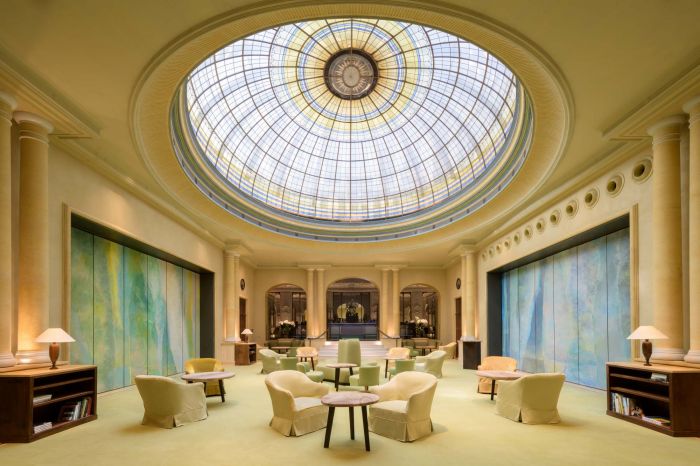
In addition to these colorful anecdotes, the hotel hosts the prestigious Munich Security Conference each year, where politicians, diplomats, and experts from around the world convene to discuss critical security matters. The discreet nature of these gatherings reflects the hotel’s long-standing tradition of guarding its secrets, adding another layer to its enigmatic appeal.
The Picasso Heist
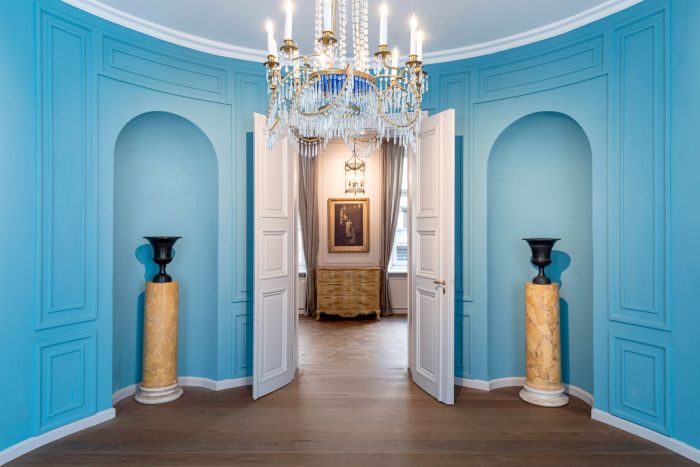
An intriguing chapter in the hotel’s storied history occurred in 1989, when Picasso’s Tête de Femme was stolen from the lobby. Despite the hotel’s security measures, the thief vanished with the artwork, and its whereabouts remain a mystery to this day—a curious footnote in a hotel filled with far more glamorous episodes.
The Bayerischer Hof’s decor pays homage to its heritage with Louis XVI-style barometers, Louis Philippe armchairs, and rich jacquard floral bedspreads. Yet it’s also a place where tradition gives way to the modern: contemporary design elements like wood, concrete, and clean lines stand in juxtaposition to the opulence of its past.
Luxurious Accommodations
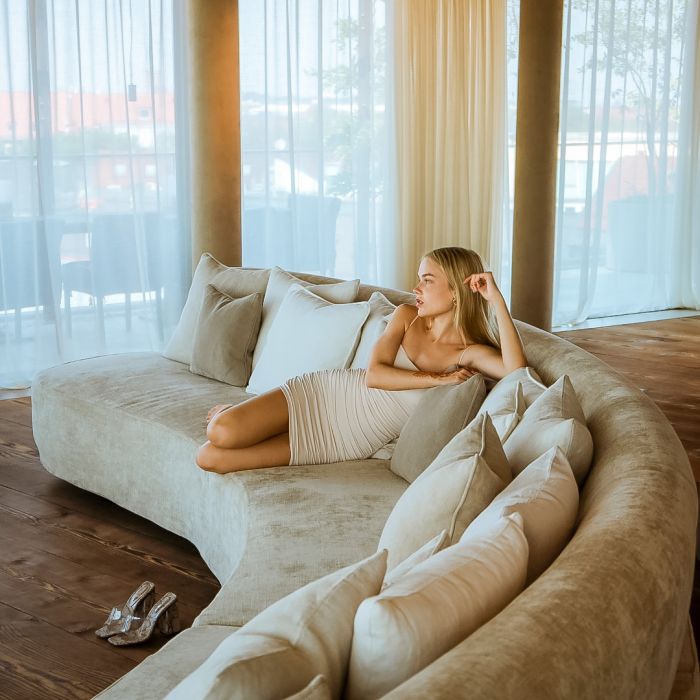
The hotel offers 340 rooms, each reflecting a different design aesthetic. The pinnacle of luxury is the €15,000-per-night penthouse suite, with a private entrance, rooftop gym, sauna, and sweeping views of Munich’s skyline.
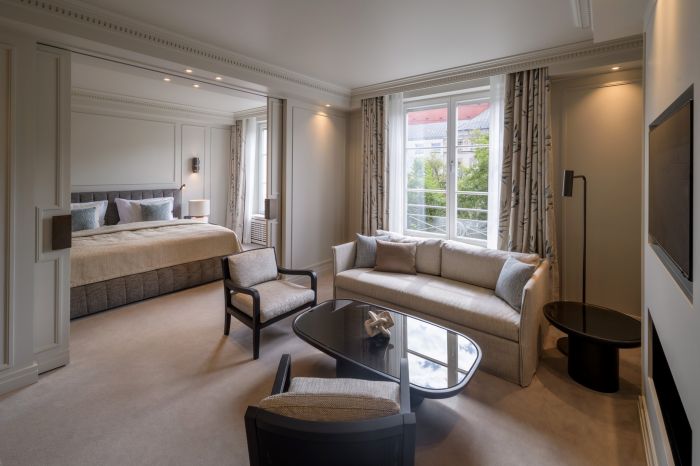
The suite’s panoramic windows allow guests to take in the city’s spires, parks, and streets, while a private terrace offers a secluded space to unwind with a sunset toast. With marble bathrooms, bespoke art, and cutting-edge amenities, it’s more than just a place to stay—it’s an experience.
Michelin Star Dining
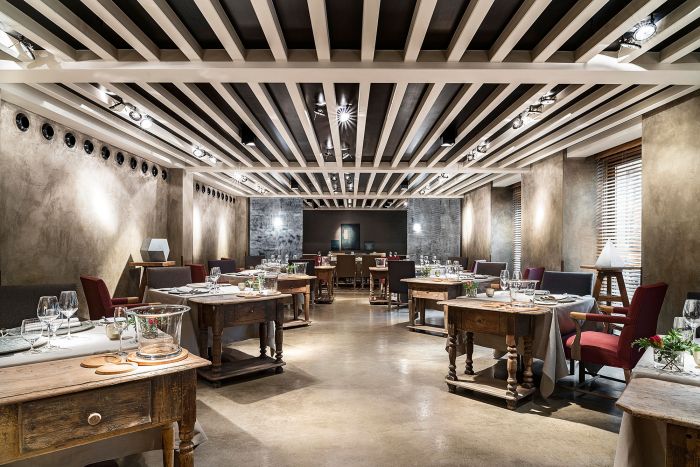
Dining at the Bayerischer Hof is an experience in itself. The Blue Spa rooftop restaurant offers Bavarian specialties like white sausage, pretzels, and deep-fried donuts in the morning, while the evening presents the opportunity to relax in the spa’s sauna and enjoy the expansive Munich view.
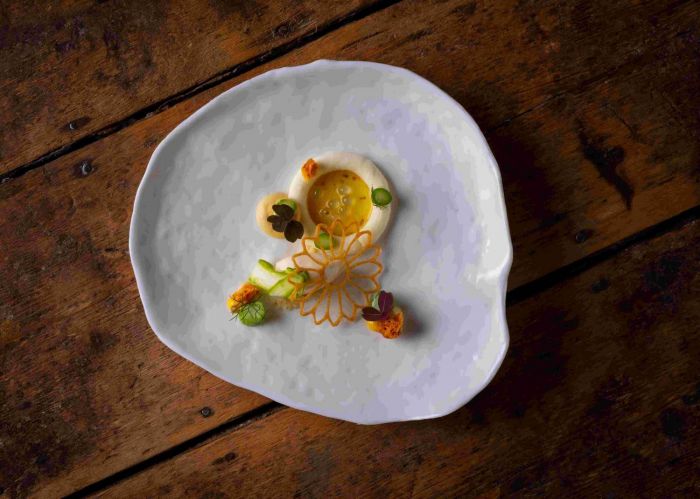
For a more elevated culinary experience, Atelier Restaurant, with its three Michelin stars, offers a modern twist on French cuisine. The concrete and wood interior exudes youthful vibrancy, and the dishes are nothing short of artistic. Highlights include perfectly roasted venison with chanterelles and rich Chartreuse jus, and a delicate Japanese hamachi served with a miso-ponzu glaze—flavors that blend artistry with craftsmanship.
Cocktails and Historic Atmosphere
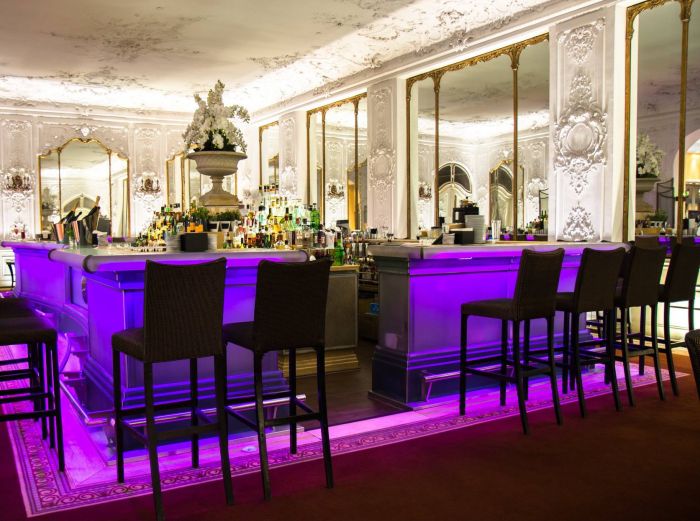
For cocktails, there’s no shortage of options. Trader Vic’s, with its Polynesian charm, offers exotic drinks in an island-inspired setting, while Falk’s Bar, nestled in the hotel’s historic Hall of Mirrors, exudes a glamorous, intimate vibe where history seems to linger in every mahogany panel.
Spa and Wellness
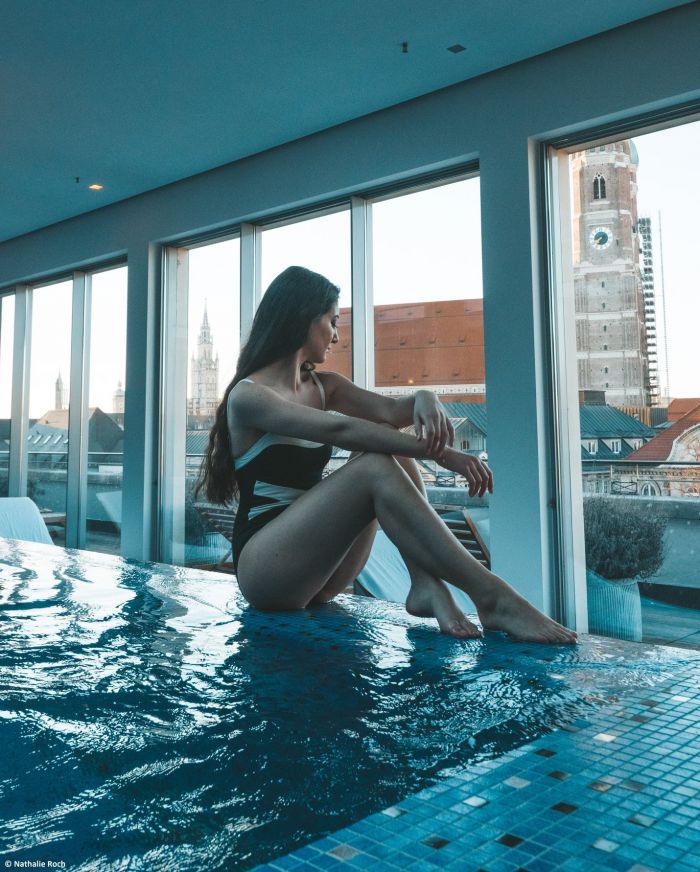
The Blue Spa, located just below the penthouse, is a sanctuary of tranquility, with a rooftop pool offering stunning views of the city. Designed by French interior designer Andrée Putman, the spa’s minimalist aesthetic and avant-garde furnishings provide a perfect contrast to the hotel’s more traditional elements, adding to the sense of timeless luxury.
A Cultural Hub
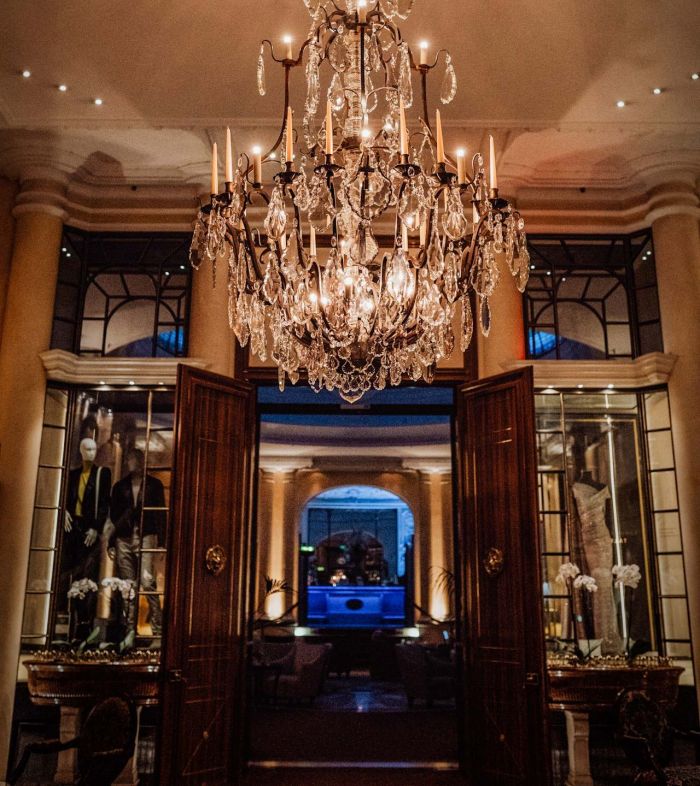
As much a cultural landmark as a hotel, the Bayerischer Hof regularly hosts art exhibitions, concerts, and international events, making it a central part of Munich’s cultural scene. Its prime location offers easy access to iconic sites such as Marienplatz and the vibrant Viktualienmarkt.
For me, staying at the Bayerischer Hof felt like stepping into a living legend. Every corridor, and every room holds echoes of a glamorous past, whispering stories of illustrious guests and historic events. This isn’t just a place to sleep; it’s a time capsule, a stage where dreams have been made and memories forged.
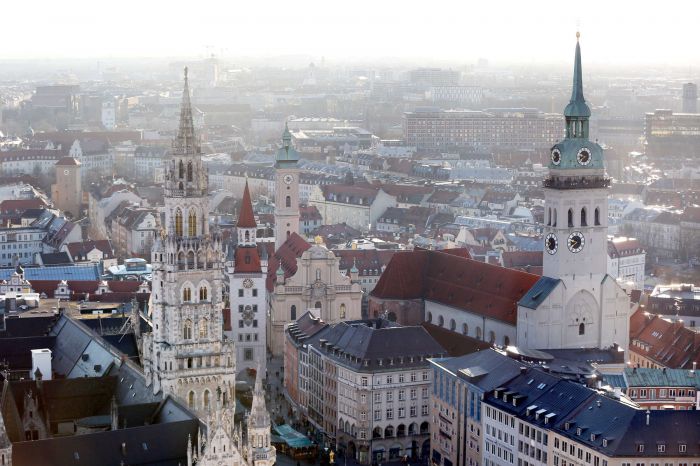
No matter your age or background, the Bayerischer Hof continues to be a beloved icon—Munich’s own rock star, forever etched in the hearts of all who visit. Its ageless appeal reflects the devotion of those who have passed through its doors, ensuring that, in 2024, it remains as cherished and adored as ever.
Written by Kemal Akhtar
![]()

